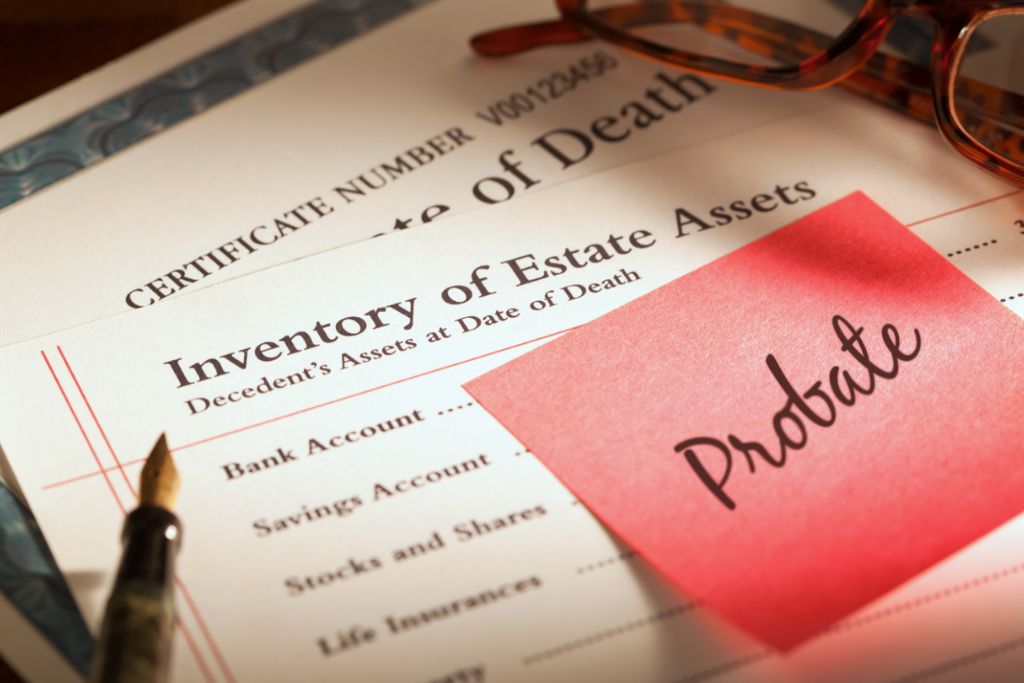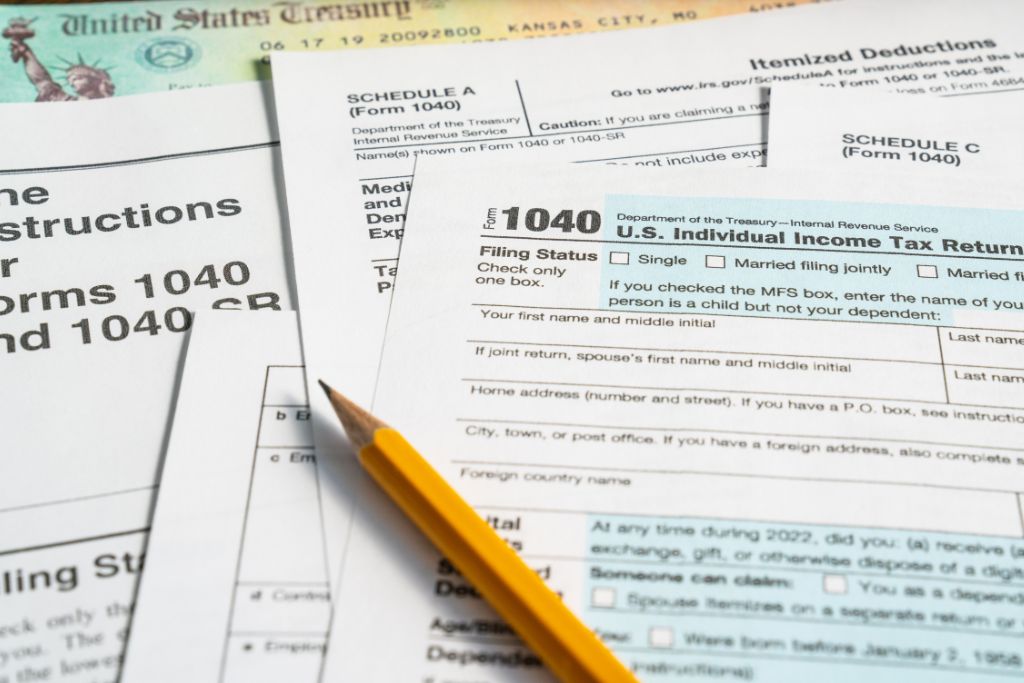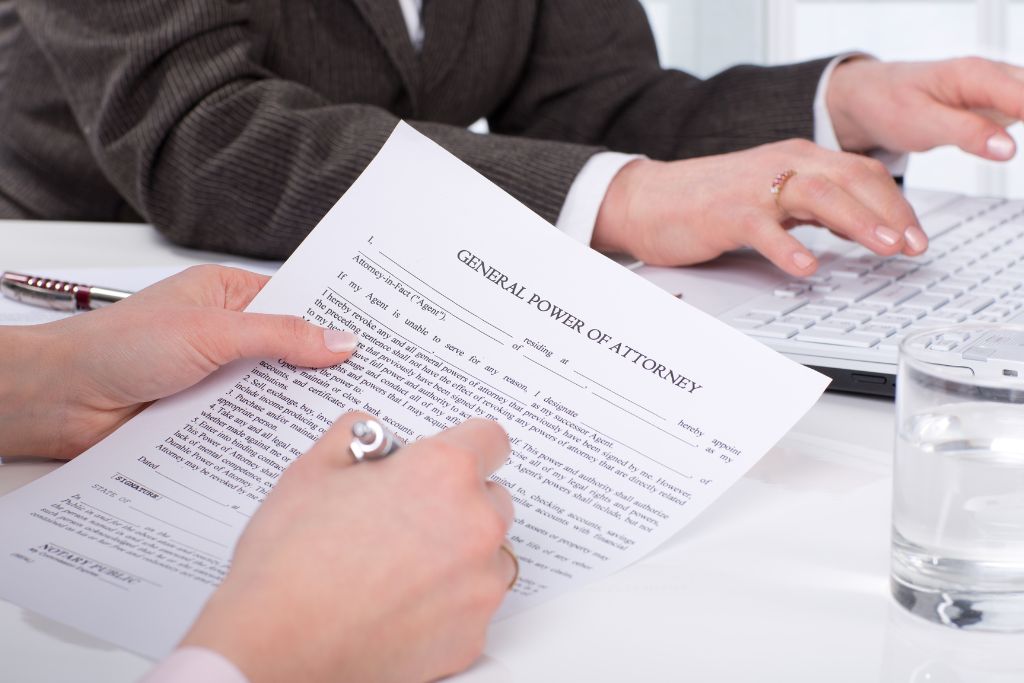After a person passes away, their estate must go through a legal process called probate. Once the process is complete, the estate can be officially closed. But what happens after that?
We’ll explore the key steps to take after closing an estate. We'll also discuss how Trustworthy can help you securely store and share important estate planning documents to streamline the probate process.
Key Takeaways
The executor or administrator is responsible for filing a petition with the probate court to close the estate formally.
Beneficiaries will receive a final accounting of the estate's assets and distributions before the estate is closed.
- Once the estate is closed, the executor's responsibilities and legal authority come to an end.
What Happens After the Estate Is Closed?

After an estate is closed, Paul Yokabitus, an estate planning lawyer at Cary Estate Planning in Cary, North Carolina, explains: “It’s never a one-size-fits-all type of strategy, but often, when we’re going to close down an estate, we usually have bank accounts or personal property that needs to be transferred.
"So generally, what the clerk of court is going to want to see is the statements from the point when the estate checking was opened through final distributions and disbursements until the accounts are zeroed out.”
Once the estate is officially closed, generally, several important changes occur:
Executor's Responsibilities End
Once the probate court issues an order officially closing the estate, the executor's duties and legal authority over the estate come to an end. This means the executor is no longer responsible for managing the estate's assets, paying debts, or communicating with beneficiaries.
The executor's discharge from their duties is a significant milestone in the probate process. It marks the completion of their legal obligations and the successful distribution of the estate's assets according to the deceased's wishes or state law.
However, the executor's discharge does not necessarily provide absolute protection from all potential liabilities. If it is later discovered that the executor mismanaged the estate, breached their fiduciary duties, or acted in bad faith, they may still be held accountable for any resulting damages or losses.
To minimize the risk of future legal challenges, executors should ensure they have:
Kept accurate and detailed records of all actions taken and decisions made during the probate process.
Communicated regularly with beneficiaries and kept them informed of the estate's progress.
Sought professional advice from attorneys, accountants, and other experts as needed.
Acted in good faith and in the best interests of the estate and its beneficiaries.
This is where a platform like Trustworthy can prove highly beneficial. Trustworthy is a secure online platform that can help you store, share, and manage important estate planning documents, making the probate process more efficient for your loved ones. With Trustworthy, you can:
Upload and store your will, trust documents, power of attorney, and other important paperwork in a secure digital vault.
Share access to these documents with your executor, beneficiaries, and trusted advisors.
Set up customized permissions and access levels for each user.
Receive reminders to review and update your documents regularly.
Access your documents anytime, anywhere, from any device.
Executors can help ensure a smooth and orderly conclusion to the estate by diligently and ethically fulfilling their duties throughout the probate process. This can also reduce the likelihood of future legal issues.
Legal Title Transfers to Beneficiaries

One of the primary outcomes of estate closure is the transfer of legal title for the estate's remaining assets to the rightful beneficiaries. This process involves changing the ownership records for various types of property, including real estate, personal property, and financial accounts.
Real Estate
For real estate owned by the deceased, the executor must work with the appropriate government agencies and financial institutions to transfer the title to the designated beneficiaries.
This may involve:
Filing a new deed with the county recorder's office.
Paying any outstanding mortgages or property taxes.
Obtaining a release of liability from the mortgage lender.
Notifying utility companies and other service providers of the change in ownership.
Personal Property
Personal property, such as vehicles, furniture, jewelry, and collectibles, also must be transferred to the designated beneficiaries.
This process may require:
Signing over vehicle titles at the local department of motor vehicles.
Physically distributing tangible assets to beneficiaries.
Obtaining appraisals for valuable items to ensure equitable distribution.
Updating insurance policies to reflect the new owners.
Financial Accounts
Bank accounts, investment accounts, and other financial assets will need to be transferred to the beneficiaries or closed if they are not being inherited.
This process may involve:
Providing the financial institution with a copy of the court order closing the estate
Submitting a death certificate and other required documentation
Opening new accounts in the beneficiaries' names or transferring funds to existing accounts
Canceling automatic payments and subscriptions associated with the deceased's accounts
The executor should work closely with legal and financial professionals to ensure all transfers of legal title are properly documented and comply with relevant laws and regulations. Beneficiaries should also be prepared to assume the responsibilities of ownership, including paying taxes, maintaining insurance coverage, and managing the inherited assets responsibly.
Creditor Claims Are Barred
One of the key benefits of the estate closure process is that it establishes a deadline for creditors to make claims against the estate for unpaid debts. Once the estate is formally closed by the probate court, creditors are generally barred from seeking payment from the estate's assets.
This means that beneficiaries can receive their inheritances without the risk of future claims from creditors, providing a sense of finality and security.
However, there are some important exceptions to this general rule. If the executor fails to properly notify known creditors of the deceased's passing or does not pay valid claims submitted during the probate process, they may be held personally liable for those debts.
If a creditor fails to submit a claim within the required timeframe or if the executor rejects it, they may file a lawsuit seeking payment. However, if the executor has followed the proper procedures and acted in good faith, the court will likely uphold the bar on creditor claims.
Tax Responsibilities Shift to Beneficiaries

After an estate is closed, the responsibility for paying taxes on inherited assets shifts from the estate to the individual beneficiaries. This means beneficiaries may need to file income tax returns or pay capital gains taxes if they sell inherited property.
Income Taxes
Beneficiaries who inherit income-generating assets, such as rental properties or investments, will be responsible for paying income taxes on any revenue earned from those assets after the date of the deceased's death.
They may also be required to pay income taxes on any interest, dividends, or other income earned by the estate during the probate process, which will be reported on the estate's final income tax return.
Capital Gains Taxes
If beneficiaries decide to sell inherited assets, such as real estate or stocks, they may be subject to capital gains taxes on any profit realized from the sale.
The cost basis for inherited assets is typically "stepped up" to the fair market value at the time of the deceased's death, which can help minimize the amount of capital gains tax owed.
However, beneficiaries should still keep careful records of the value of inherited assets and consult with a tax professional to ensure that they are complying with all applicable tax laws. By using Trustworthy to organize and share your estate planning documents, you can help your executor navigate the probate process more easily and ensure that your wishes are carried out efficiently.
Estate Taxes
In some cases, beneficiaries may also be responsible for paying estate taxes on their inherited assets.
If estate taxes are owed, they are typically paid by the estate during the probate process, but beneficiaries may need to file additional tax returns or pay any outstanding balances after the estate is closed.
Beneficiaries should work closely with the executor and tax professionals to ensure that they understand their tax responsibilities and are properly reporting any income or gains related to their inherited assets.
Power of Attorney and Estate Closure

It's important to note that a power of attorney is no longer valid after the person who granted it (the principal) passes away. At that point, the authority to manage the deceased's affairs shifts to the executor named in their will or an administrator appointed by the court.
If you serve as an agent under a power of attorney and the principal dies, you should notify the executor or administrator and turn over any relevant documents or assets in your possession.
Frequently Asked Questions
Can an estate be closed if there are pending lawsuits against the deceased?
Generally, an estate cannot be fully closed if there are pending lawsuits against the deceased or the estate. The executor must wait until all legal claims have been resolved before petitioning the court to close the estate. In some cases, the executor may need to set aside funds to cover potential legal expenses or settlements.
What happens if an heir or beneficiary cannot be located?
If an heir or beneficiary cannot be located after a diligent search, the executor may be required to turn over their share of the estate to the state's unclaimed property fund. The missing heir or beneficiary can then claim their inheritance from the state at a later date, subject to the state's specific unclaimed property laws and procedures.
How long does an executor have to close an estate after the deceased's passing?
The timeline for closing an estate varies depending on its complexity and the specific laws of the state where the deceased lived.
In general, simple estates may be closed within 6-12 months, while more complex estates can take several years. Executors should work diligently to settle the estate as quickly as possible while ensuring that all necessary legal and financial steps are taken.
We’d love to hear from you! Feel free to email us with any questions, comments, or suggestions for future article topics.
Trustworthy is an online service providing legal forms and information. We are not a law firm and do not provide legal advice.














